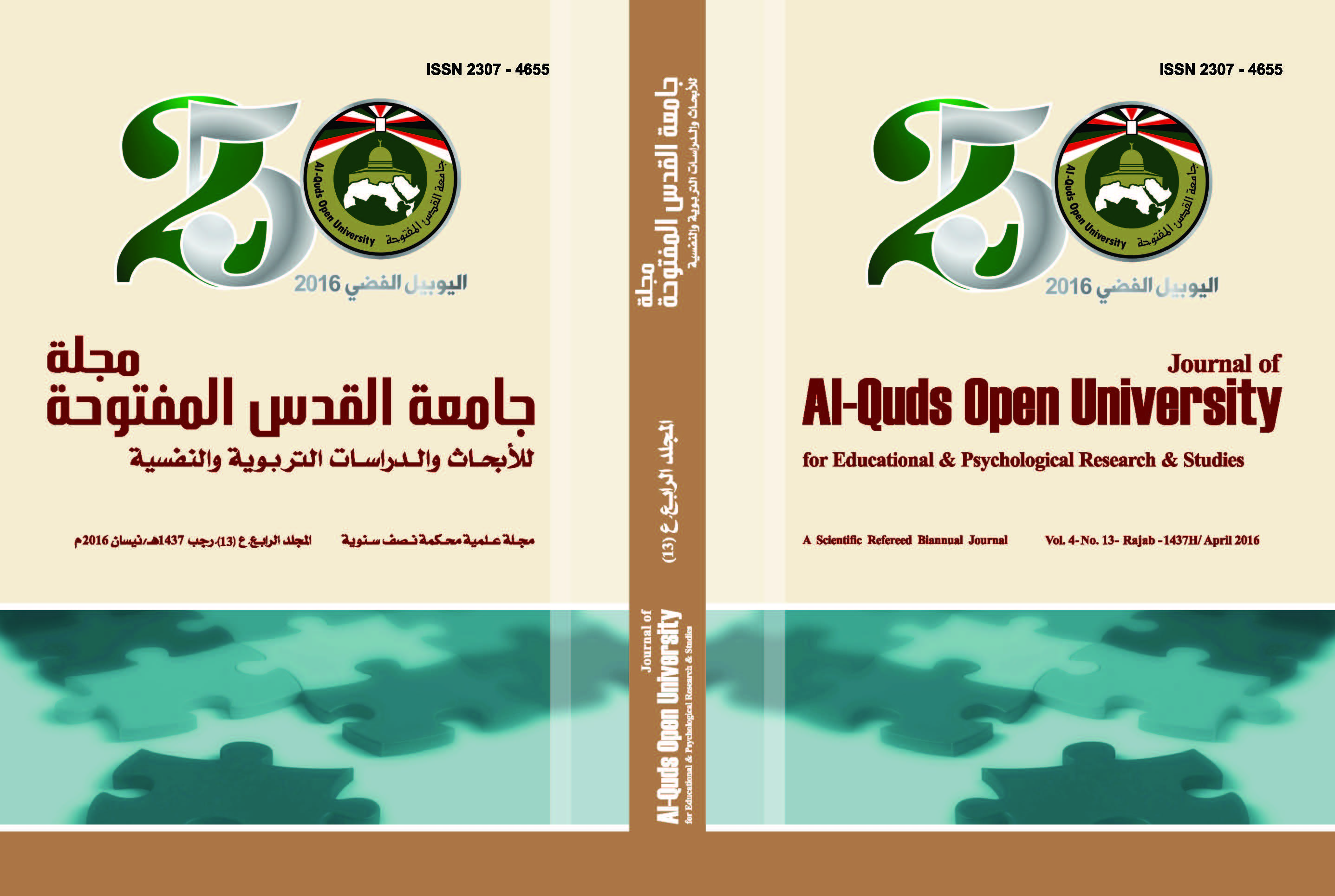The Effectiveness of the Strategy of Digital Storytelling in the Acquisition of Technological Concepts in Basic Ninth Grade Students in Gaza
Keywords:
Effectiveness, Digital storytelling, Strategy in digital storytelling, Technological concepts, Acquisition of technological concepts.Abstract
The aim of this study is to reveal the effectiveness of the strategy in the
digital storytelling in the acquisition of technological concepts of basic ninth
grade students in Gaza. To answer the questions of the study, the researchers
built a study tool (technological concepts scale) , which consists of (65) items
in multiple- choice form. To meet the purpose of this study, the researchers
compiled a list of standards and criteria of e- learning technology for the
design of digital storytelling. The questionnaire consisted of (12) standards
with (74) criteria. A sample of (56) of basic ninth grade female students
were randomly selected and distributed to two groups. One represents the
experimental group of (28) students and the other represents the control group
of (28) students. After the application of the study tool and completion of the
experiment, the study showed the following results: There were statistically
significant differences at the level of significance (a ≤ 0.01) between the
mean scores of students in the experimental group and the control group in the
technological concepts scale. There were statistically significant differences
at the level of significance (a ≤ 0.01) between the mean scores of students
in the experimental group in the technological concepts scale before and
after the application of digital stories. Digital stories strategy is effectively
characterized to instill in basic ninth grade students in Gaza technological
concepts according to the rate of Black Gain.
Downloads
Published
How to Cite
Issue
Section
License
- The editorial board confirms its commitment to the intellectual property rights
- Researchers also have to commit to the intellectual property rights.
- The research copyrights and publication are owned by the Journal once the researcher is notified about the approval of the paper. The scientific materials published or approved for publishing in the Journal should not be republished unless a written acknowledgment is obtained by the Deanship of Scientific Research.
- Research papers should not be published or republished unless a written acknowledgement is obtained from the Deanship of Scientific Research.
- The researcher has the right to accredit the research to himself, and to place his name on all the copies, editions and volumes published.
- The author has the right to request the accreditation of the published papers to himself.







2.png)






_2.png)

